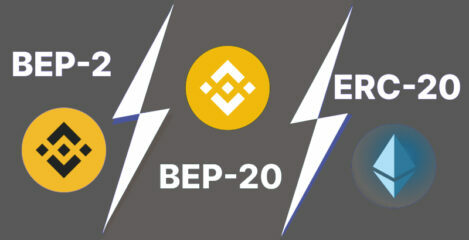Blockchain For IoT Security – Solution Challenges


Blockchain For IoT Security – Solution Challenges
Blockchain technology is changing how we secure IoT systems, especially by combining IoT security with blockchain. This method improves security by spreading data across many computers, making it harder for hackers to attack a single point. By eliminating single points of failure, blockchain enhances the overall resilience of Internet of Things networks. This decentralized approach boosts security and increases trust among users and devices.
- Is Blockchain a Secure System?
- How is Blockchain Used In IoT Security?
- How To Implement Blockchain for IoT Security?
- How Much is The Cost of Implementing Blockchain For IoT Security?
- What Are the Benefits of Using Blockchain In IoT?
- Should Businesses Invest In Blockchain For IoT Security?
- Challenges in Integrating Blockchain Into the IoT
- Use Cases of Blockchain For IoT Security
- EvaCodes Experience
- Conclusion
Is Blockchain a Secure System?
Blockchain aims to be an inherently secure system designed to provide transparency and immutability, which is critical for IoT blockchain security. Blockchain security is fortified by its decentralized nature, which means the data is stored across multiple independently operated nodes, underscoring the importance of blockchain development services. This distribution makes it extremely challenging for any single entity to use the data without agreement from the entire network. Moreover, cryptographic techniques are employed in blockchain IoT security to provide the integrity and confidentiality of the data.
Blockchain offers a fundamentally secure structure for data management, which is crucial for Internet of Things applications. Nevertheless, it must be supplemented by best practices in cybersecurity to address emerging threats and operational weaknesses, ensuring a resilient security posture.
How is Blockchain Used In IoT Security?
Blockchain technology offers a decentralized approach to enhancing protection in the Internet of Things (IoT) ecosystem, where data integrity and authenticity are paramount.
Blockchain utilizes a distributed ledger to ensure that every transaction and data exchange within the IoT network is transparently recorded and immutable.
This creates a tamper-proof record that is highly resistant to cyber-attacks and unauthorized alterations, enhancing the reliability of sensor data collected. By integrating blockchain technology, organizations can significantly bolster their IoT ecosystems’ security, transparency, and reliability, paving the way for more secure and efficient operations with the assistance of blockchain development services.
How To Implement Blockchain for IoT Security?
Implementing blockchain for IoT security involves several critical steps to ensure a strong and protected integration. By following these actions, you can effectively implement blockchain for IoT security, enhancing the protection and reliability of your IoT network. Here’s a comprehensive guide to help you navigate the process:
Define Objectives and Requirements
Identify Security Needs: Determine the specific security challenges your IoT network faces.
Set Clear Goals: Establish what you aim to achieve with blockchain integration, such as data integrity, secure communication, or decentralized control.
Find a Reputable Blockchain Development Company
Research Providers: Look for companies with proven blockchain and IoT security expertise.
Evaluate Experience: Check their portfolio and client testimonials to assess their experience and reliability.
Request Proposals: Get detailed proposals to understand their approach, timeline, and cost.
Choose the Right Blockchain Platform
Evaluate Options: Research blockchain platforms like Ethereum, Hyperledger, or IOTA.
Consider Scalability: Ensure the platform can handle the volume of IoT transactions.
Assess Security Features: Look for built-in security protocols and consensus mechanisms.
Develop and Deploy Smart Contracts
Write Smart Contracts: Tailor smart contracts to your specific security requirements with expert smart contract development.
Test Rigorously: Conduct thorough testing to identify and fix vulnerabilities.
Deploy: Implement the smart contracts on your chosen blockchain platform.
Integrate IoT Devices
Device Compatibility: Ensure IoT devices are compatible with the blockchain network.
Secure Communication: Implement secure communication protocols between devices and the blockchain.
Authentication: Use blockchain-based authentication to verify device identities.
Educate and Train
Training Programs: Train your team on blockchain development services and security best practices.
Stay Informed: Stay updated with the most delinquent outcomes in blockchain protection and the Internet of Things.


Expert WEB3 Development
We build decentralized applications and smart contracts for a variety of uses.
How Much is The Cost of Implementing Blockchain For IoT Security?
Implementing blockchain for IoT security involves various costs, making understanding upfront expenditures and ongoing expenses essential.
The total cost can vary from a few hundred thousand to several million dollars, depending on the project’s particular scale. It is important to perform a thorough cost-benefit analysis to determine whether your organization’s investment in blockchain for IoT security is justified.
What Are the Benefits of Using Blockchain In IoT?
Integrating blockchain technology into IoT networks offers enhanced security, improved data integrity, decentralized control, efficient transactions, scalability, enhanced privacy, and cost reduction by enabling IoT security using blockchain. These advantages make blockchain a compelling solution for securing and optimizing IoT ecosystems.
Enhanced Security
Blockchain provides a decentralized and tamper-proof ledger, ensuring that data transmitted between IoT devices is secure and immutable. This significantly reduces the danger of data breaches and unauthorized entrance.
Improved Data Integrity
With blockchain, multiple nodes register and verify every transaction, providing data integrity and authenticity. This is particularly crucial for IoT applications where accurate and reliable data is essential.
Decentralized Control
Blockchain eliminates the need for a central authority, distributing control across the network. This decentralization enhances the resilience of IoT systems against attacks and failures, as there is no single point of vulnerability.
Efficient and Transparent Transactions
Smart contracts automate processes and enforce rules without human intervention, leading to more efficient and transparent transactions. This can streamline operations and reduce the potential for human error in IoT ecosystems.
Enhanced Privacy
Blockchain’s cryptographic techniques protect sensitive data, enhancing privacy for users and devices. This is particularly important in IoT applications that handle personal or confidential information.
Cost Reduction
Blockchain can lower operational costs by automating processes and reducing the need for intermediaries. This cost efficiency benefits businesses looking to scale their IoT solutions without incurring significant expenses.
Should Businesses Invest In Blockchain For IoT Security?
Investing in blockchain technology for IoT security can provide enhanced protection and decentralized control over connected devices, a key aspect of utilizing blockchain in IoT security. Blockchain’s inherent capabilities ensure robust encryption and reduce the vulnerability to cyber-attacks.
By integrating blockchain with IoT, businesses gain real-time monitoring and tamper-proof recording capabilities. This convergence ensures data integrity and minimizes the risk of malicious interference in critical operations. While initial implementation costs and technical complexities may seem daunting, the long-term benefits, such as heightened security, operational efficiency, and regulatory compliance, far outweigh the challenges.
By investing in blockchain, businesses can solidify their defenses and build trust in the increasingly interconnected digital landscape.
Challenges in Integrating Blockchain Into the IoT
Integrating blockchain into the IoT ecosystem presents challenges due to inherent architectural differences. These challenges include interoperability issues, resource constraints, scalability concerns, latency problems, and security risks.
- Interoperability: Seamless communication between diverse IoT devices and blockchain networks is complex.
- Resource Constraints: IoT devices’ limited processing power, memory, and battery life hinder blockchain integration.
- Scalability: Handling extensive throughput for numerous IoT devices without performance loss is challenging.
- Latency: Blockchain transactions can introduce delays, affecting real-time IoT applications.
- Security: Safeguarding cryptographic keys on unsecured IoT devices poses significant risks.
Use Cases of Blockchain For IoT Security
Blockchain technology and cryptocurrency exchange offer numerous use cases for enhancing IoT security, including supply chain management, smart homes, healthcare, and autonomous vehicles. By providing immutability, transparency, and secure data handling, blockchain offers the integrity and reliability of IoT systems across various industries.
Supply Chain Management
Blockchain can significantly enhance IoT-enabled supply chain systems by providing immutability, transparency, and traceability of the goods’ journey.
Smart Homes
Another relevant application is smart home security, where blockchain guarantees data privacy by encrypting and decentralizing data storage. This makes it hard for unauthorized parties to access or tamper with sensitive information, enhancing the overall security of smart home devices and giving homeowners greater peace of mind and control over their data.
Healthcare
Blockchain in IoT healthcare devices ensures secure handling of sensitive medical data, patient records, and real-time monitoring information, thereby maintaining privacy, integrity, and accessibility.
Autonomous Vehicles
Blockchain technology can secure communication channels between self-driving cars and IoT infrastructures, mitigating risks of data breaches or malicious attacks. Through decentralized exchange development networks, the validation of vehicular data ensures accurate traffic management, improved safety standards, and the prevention of unauthorized overrides.
EvaCodes Experience
EvaCodes specializes in creating blockchain solutions. Our team of experts ensures seamless integration, robust security, and efficient network performance. Our comprehensive approach includes real-time monitoring, proactive threat detection, and compliance with industry standards.
We handle everything from development and hardware integration to ongoing maintenance and support. Partner with us to enhance your IoT security with cutting-edge blockchain technology and stay ahead in the rapidly evolving digital landscape.
Conclusion
Integrating blockchain technology into IoT ecosystems offers a transformative approach to enhancing security, transparency, and efficiency. Despite the challenges of interoperability, resource constraints, and scalability, the benefits of decentralized control, improved data integrity, and cost reduction make blockchain a compelling solution for IoT security. By partnering with experts like EvaCodes, businesses can navigate these complexities and harness the full possibility of blockchain to secure and optimize their IoT networks, ensuring a resilient and future-proof digital infrastructure.
Written by Vitaliy Basiuk
CEO & Founder at EvaCodes | Blockchain Enthusiast | Providing software development solutions in the blockchain industry





